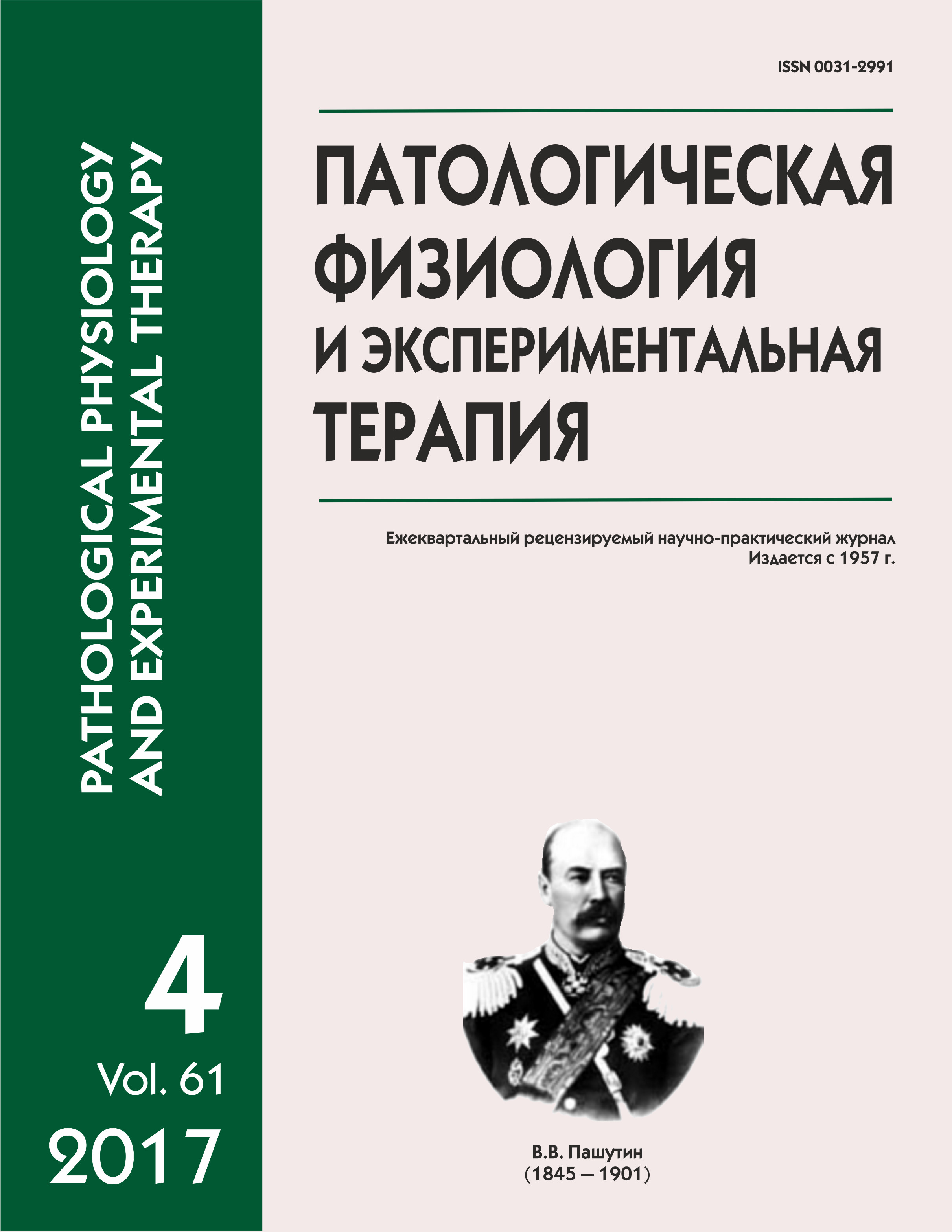Влияние дексаметазона на процессы активации и созревания CD3+CD4+CD45RO+ Т-клеток при ревматоидном артрите in vitro
DOI:
https://doi.org/10.25557/IGPP.2017.4.8528Ключевые слова:
Т-клетки памяти; ревматоидный артрит; глюкокортикоидный гормон; дексаметазон; активация; дифференцировка; созревание.Аннотация
Цель — исследование влияния глюкокортикоида дексаметазона (Dex) на процессы активации и генерации терминально-дифференцированных эффекторных CD4+ Т-лимфоцитов (TEMRA) в культурах CD3+CD45RO+ Т-клеток в условиях, имитирующих стимуляцию Т-клеточного рецептора in vitro в норме и при ревматоидном артрите (РА). Методика. Исследовали мононуклеарные лейкоциты (МНК) из венозной гепаринизированной крови 50 пациентов с ревматоидным артритом. Методом проточной цитофлюориметрии проанализировано изменение иммунофенотипа Т-лимфоцитов; иммуноферментным анализом оценена секреция CD3+CD45RO+ Т-клетками цитокина IL-2; методом полимеразной цепной реакции определена экспрессия мРНК генов hTERT, U2af1l4 и Gfi1 в CD3+CD45RO+ Т-клетках. Результаты. Полученные данные демонстрируют, что in vitro на фоне TCR-активации CD3+CD45RO+ культур Т-клеток, Dex (в разной степени выраженности) участвует в формировании субпопуляции терминально-дифференцированных эффекторов (CD3+CD4+CD45RO-CD28- TEMRA), характеризующихся низкой теломеразной активностью, потерей молекул костимуляции (CD28) и активации (CD25) и реэкспрессирующих высокомолекулярную изоформу рецептора CD45 — CD45RA в норме и у больных РА. Заключение. Сделано заключение, что популяция CD3+CD4+CD45RO-CD28- лимфоцитов является ключевым участником в патогенезе РА, ускоренно приобретающая свой негативный потенциал на фоне глюкокортикоидной терапии, способствуя прогрессии заболевания, в частности, за счет мощного выброса провоспалительных медиаторов.Загрузки
Опубликован
2017-12-18
Выпуск
Раздел
Оригинальные исследования
Как цитировать
[1]
2017. Влияние дексаметазона на процессы активации и созревания CD3+CD4+CD45RO+ Т-клеток при ревматоидном артрите in vitro. Патологическая физиология и экспериментальная терапия. 61, 4 (Dec. 2017), 87–97. DOI:https://doi.org/10.25557/IGPP.2017.4.8528.













